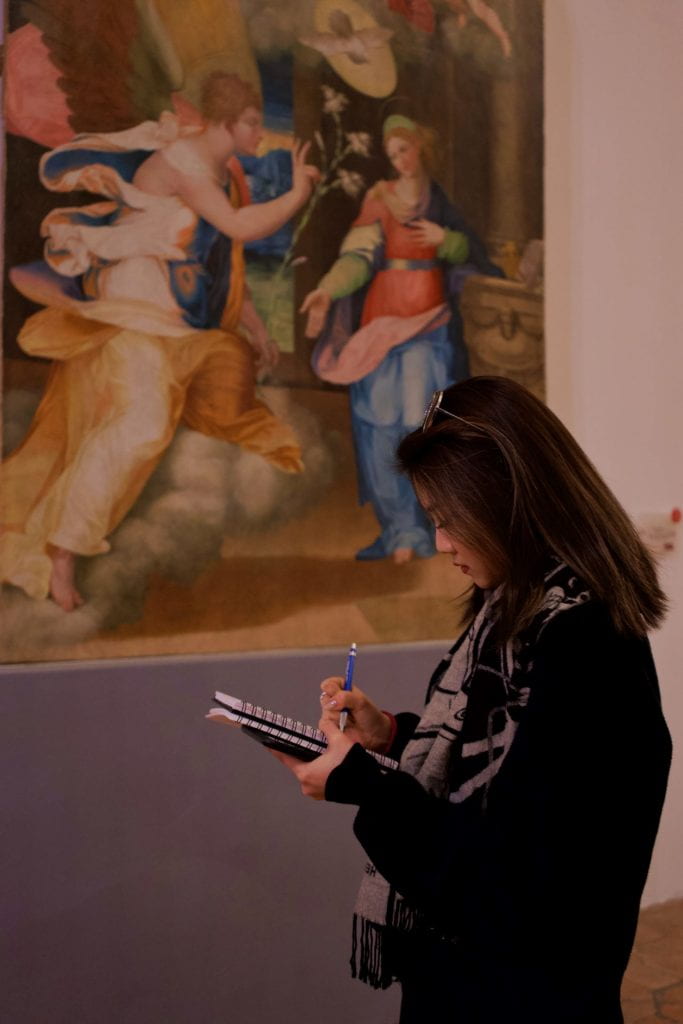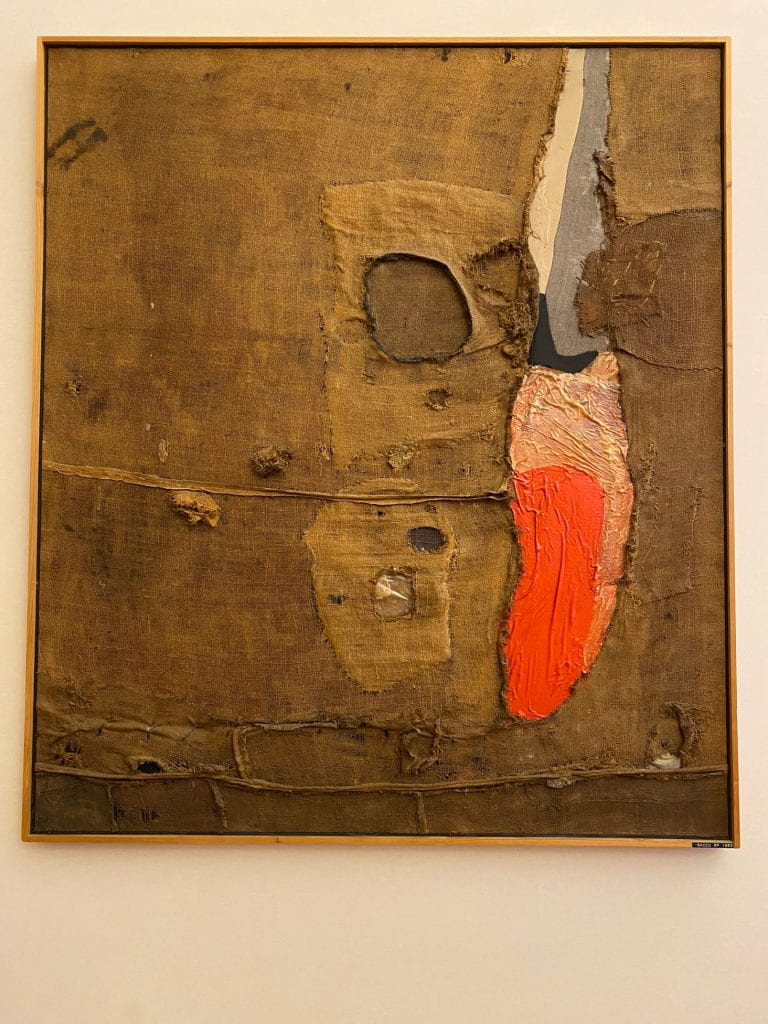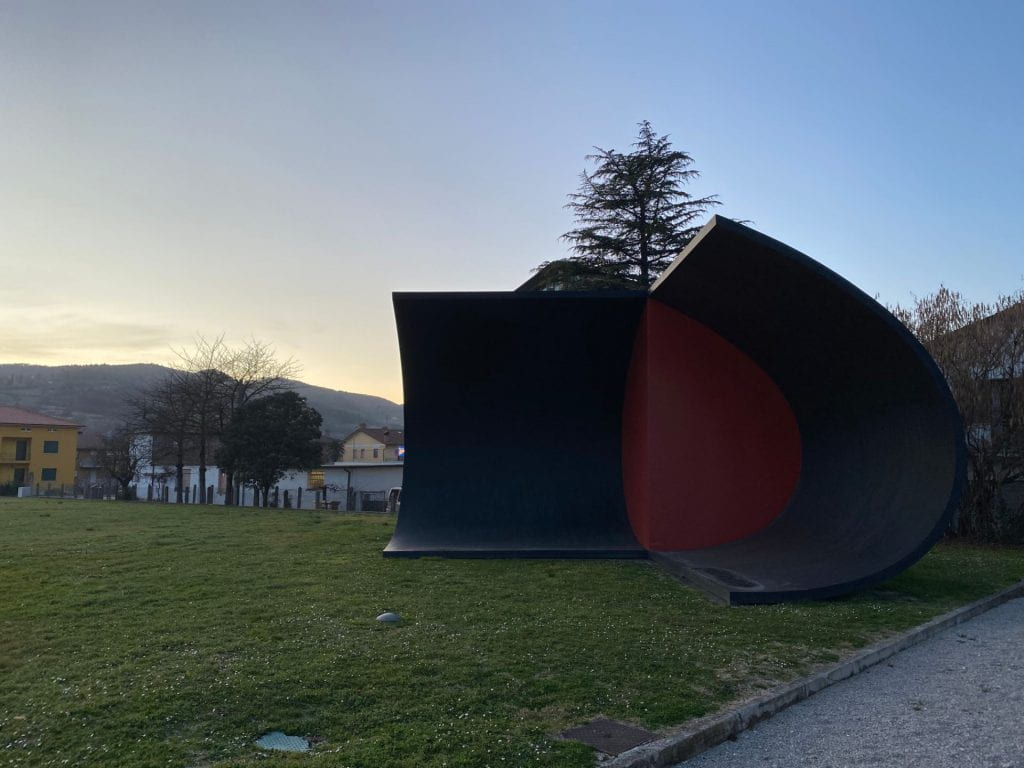By Joseph Reigle
Last week architecture and urban planning students began a busy week of travel through central and northern Italy. Our field trip took us by foot, train, bus, and boat through Arezzo, Città di Castello, Urbino, Ravenna, Verona, Vicenza, and beautiful Venice. I will fill you in on every detail, chronicling our journey hour by hour (give or take a little bit).

Day 1, Wednesday: Arezzo
10 a.m. arrival in Arezzo From Rome, we drove two and a half hours north to our first destination, Arezzo. Students stretched their legs, strolled the quiet streets of the small town, and drank some espresso before entering the basilica of San Francesco. We took our time inside, admiring the famous cycle of frescoes by Piero della Francesca, The Stories of the True Cross.


11 a.m. Santa Maria della Pieve Exiting San Francesco, we walked uphill towards the 10th-century church Santa Maria della Pieve. The church contains elements of Gothic style interior design and an iconic Romanesque bell tower. A barrel vault at the entrance is a distinctive architectural element. And the Tarlati polyptych by Pietro Lorenzetti placed at the high altar adds to the building’s renowned.

11:30 a.m. Piazza Grande Right outside Santa Maria della Pieve, we admired the elegant Piazza Grande. Sloping red bricks and a collage of medieval and renaissance facades compose the noteworthy medieval square.

2:30 p.m. Civic Museum of Sansepolcro After splitting up to find a bite to eat, we regrouped and drove an hour northeast to the Civic Museum of Sansepolcro, where we beheld another famed work by Piero della Francesca, The Polittico della Misericordia (Polyptych of the Misericordia).

4:00 p.m. Fandozone Burri in Città di Castello Leaping from 15th-century polyptychs to 20th-century experimentation, we drove 10 miles to Città di Castello, the hometown of the famed Italian modern artist Alberto Burri. The Fondazione Burri houses the artist’s highly abstract and experimental paintings and sculptures in the historic Palazzo Albizzini and the creatively reclaimed exhibition space Ex Seccatoi del Tabacco (The Old Tobacco Dryhouses).


7:30 p.m. arrival in Urbino At sunset, our schedule pulled us away from admiring Burri’s famous artworks and took us toward our hotel in the picturesque college town of Urbino, where we looked forward to another full day of activities ahead.
